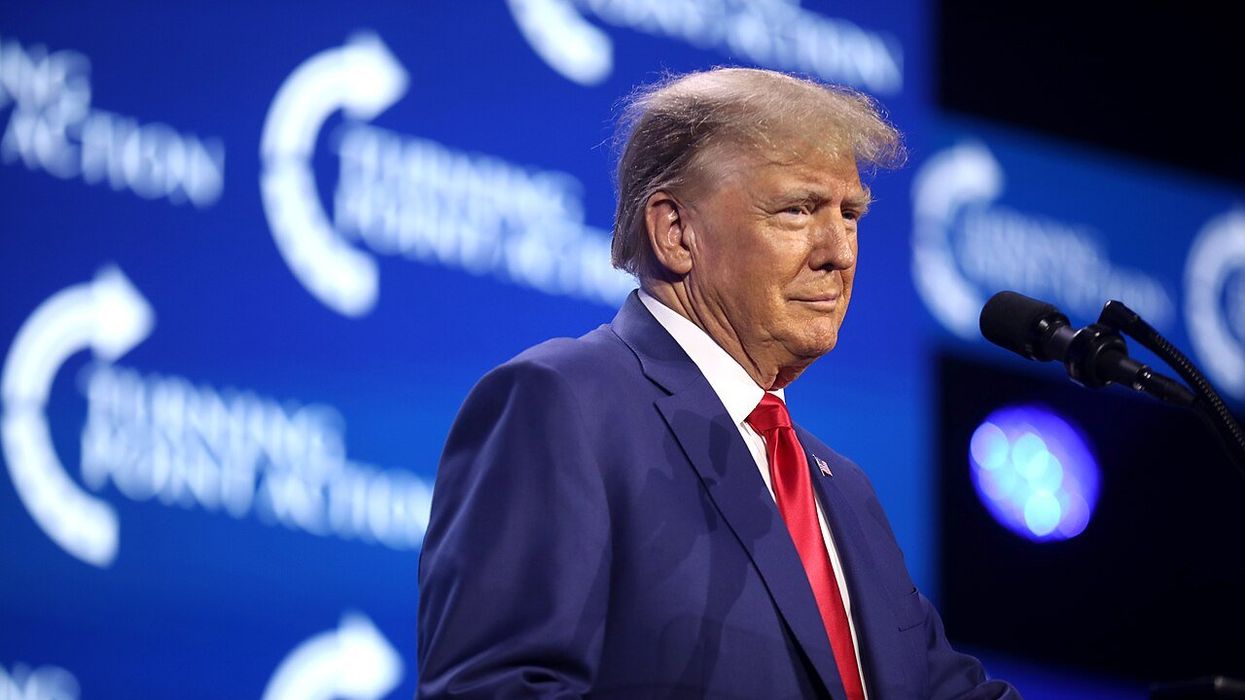How Trump could 'exceed his constitutional powers' during a second term

December 11, 2023 | 09:53AM ETElection 2024

During an early December townhall event, Fox News' Sean Hannity asked 2024 presidential frontrunner Donald Trump if he would "abuse power" if he returns to the White House in 2025.
Trump responded, "This guy, he says, 'You're not going to be a dictator, are you?' I said, 'No, no, no — other than Day 1.' We're closing the border. And we're drilling, drilling, drilling. After that, I am not a dictator."
Trump's devotees, including Sen. J.D. Vance (R-Ohio), have been quick to defend Trump's "dictator" comment — arguing that his critics are taking a comment that was meant to be humorous way too seriously.
POLL: Should Trump be allowed to hold office again?
"Every grown man hyperventilating about this clip needs to find a sense of humor," Vance tweeted.
But according to some experts on authoritarianism interviewed by the Washington Post, Trump's comments on what he would do at the beginning of a second term are no laughing matter.
Post reporter Sarah Ellison, in an article published on December 11, explained, "For autocracy scholars and constitutional law experts, Trump's statements raised alarms that he had thought carefully about how to consolidate the levers of power should he return to office in ways that eluded him in his first four years in the White House."
Ruth Ben-Ghiat, author of the book "Strongmen: From Mussolini to the Present" and an historian at New York University, told the Post, "I know of zero dictators who became more democratic. That's not how autocrats behave."
READ MORE: Conservative brutally mocks JD Vance for downplaying Trump’s 'dictator' comment
Ellison reports that according to scholars, Trump could do the following things early in a second term: (1) "Fire large numbers of federal employees on Day One," (2) "Invoke the Insurrection Act," and (3) "Punish media foes."
Daniel Treisman, who teaches political science at the University of California, Los Angles (UCLA), told the Post, "It's pretty clear that if elected, Trump would use all his constitutional powers aggressively to pursue his agenda. On many matters, including the border and drilling for oil, he could do a lot by executive order…. People should be very concerned that he will try to exceed his constitutional powers. But with a friendly Republican Party, Trump has effectively co-opted elements of the government that do not require exceeding the Constitution."
David Pozan, a law professor at Columbia University in New York City, told the Post, "With Trump, the line between provocation and prevarication is always blurry. I think we should take that 'dictator’' comment seriously as a window into his mindset, and an admission of his authoritarian designs, even if the precise policy implications are unclear — even to him."
READ MORE: Rob Reiner: 2024 is all about stopping 'fascist' Trump from becoming a full-fledged dictator
Read the Washington Post's full report at this link (subscription required).